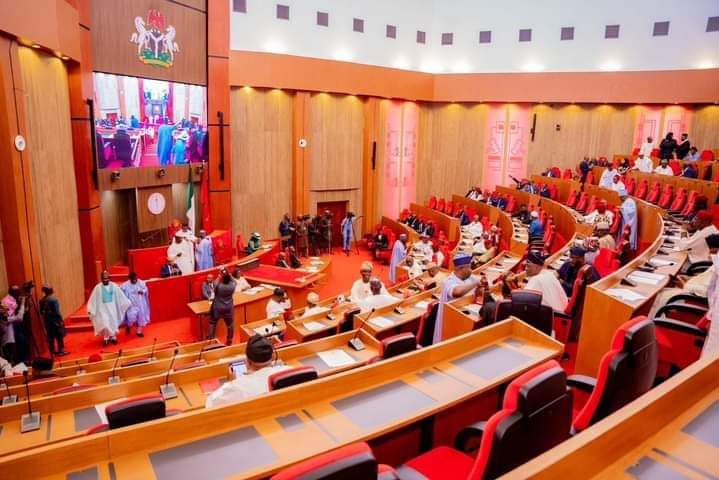The Nigerian Senate on Tuesday began deliberations on a critical legislative effort to overhaul the Electricity Act, 2023, as it considered the Electricity Act (Amendment) Bill, 2025, sponsored by Senator Enyinnaya Abaribe (Abia South).
The proposed amendments aim to rescue the country’s power sector from looming collapse by strengthening legal, institutional, and regulatory frameworks amid staggering sectoral debts and persistent infrastructure sabotage.
Leading the debate, Senator Abaribe described the amendment as a timely and necessary legislative intervention to correct ambiguities, prevent legal inconsistencies between federal and state electricity laws, and improve coordination in the wake of the 2023 constitutional amendment that devolved electricity powers to the states.
“This Bill addresses the reality that the Nigerian power sector is hanging on a cliff. With trillions of naira in sector-wide debts and operational bottlenecks, we must act fast to prevent a total system breakdown,” Abaribe warned.
He listed key objectives of the amendment to include proposals for 28 amendment clauses; enhance regulatory coordination between national and sub-national governments; criminalise electricity infrastructure vandalism; clarify transitional regulatory roles between NERC and states; restructure the Power Consumer Assistance Fund for targeted subsidies; define host community engagement frameworks; strengthen industrial relations while respecting essential service obligations; and streamline and clarify several operational sections of the existing Act.
The legislation also proposes formally establishing a Forum of Electricity Regulators, recognising the National Electric Power Policy Council, and updating statutory funding mechanisms for NEMSA and N-HYPPADEC.
Several senators endorsed the bill, describing it as “revolutionary,” “urgent,” and essential for Nigeria’s energy stability.
Senator Muhammad Tahir Monguno (Borno North) likened the amendment’s significance to the Petroleum Industry Act, stressing the urgent need to criminalise vandalism, which he said has left parts of his constituency in darkness for over six months.
Senator Lola Ashiru (Kwara South) highlighted the trillion-naira debt owed to electricity generation and distribution companies. “This amendment must undergo a second reading and thorough legislative scrutiny,” he stated.
In a passionate intervention, Senator Muhammad Adamu Aliero called for the introduction of capital punishment for power vandals, citing the destruction of national assets as economic sabotage.
Senator Solomon Olamilekan Adeola, Chair of the Senate Appropriations Committee, highlighted the issue of sabotage by contractors and called for stricter control over electricity subsidies, which he stated remain unsustainable. He warned that the bill, although privately sponsored, must align with executive policy.
Senator Garba Maidoki expressed concerns about tariff hikes and the refusal of DISCOs to comply with Senate resolutions. “GENCOs have not paid for gas in five years. The system is broken,” he observed.
Senator Buhari Abdulfatai called for harsher sanctions on vandals who often return to the grid shortly after being released, while Senator Sahabi Yaú condemned the practice of communities purchasing transformers with public funds only for DISCOs to take ownership and impose charges for access.
In conclusion, Senator Abaribe clarified that the amendment would not impose additional financial burdens on the federal government. Instead, it offers a cost-saving approach by closing loopholes and resetting the legal and operational foundation of the power sector.
The Bill has now passed its second reading and is expected to proceed to the Senate Committee on Power for further legislative action. The Senate President, Godswill Akpabio, gave the committee six weeks.

